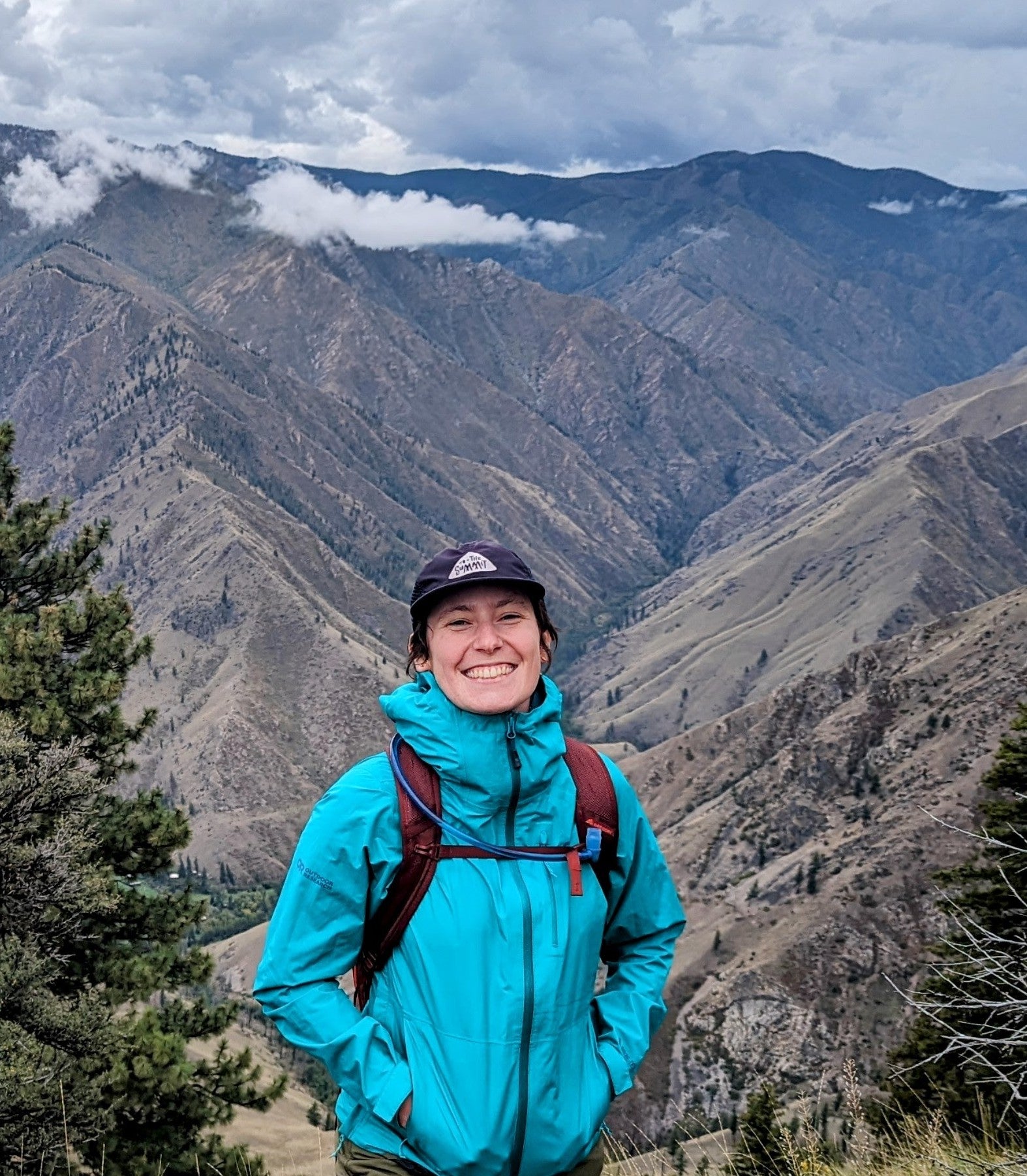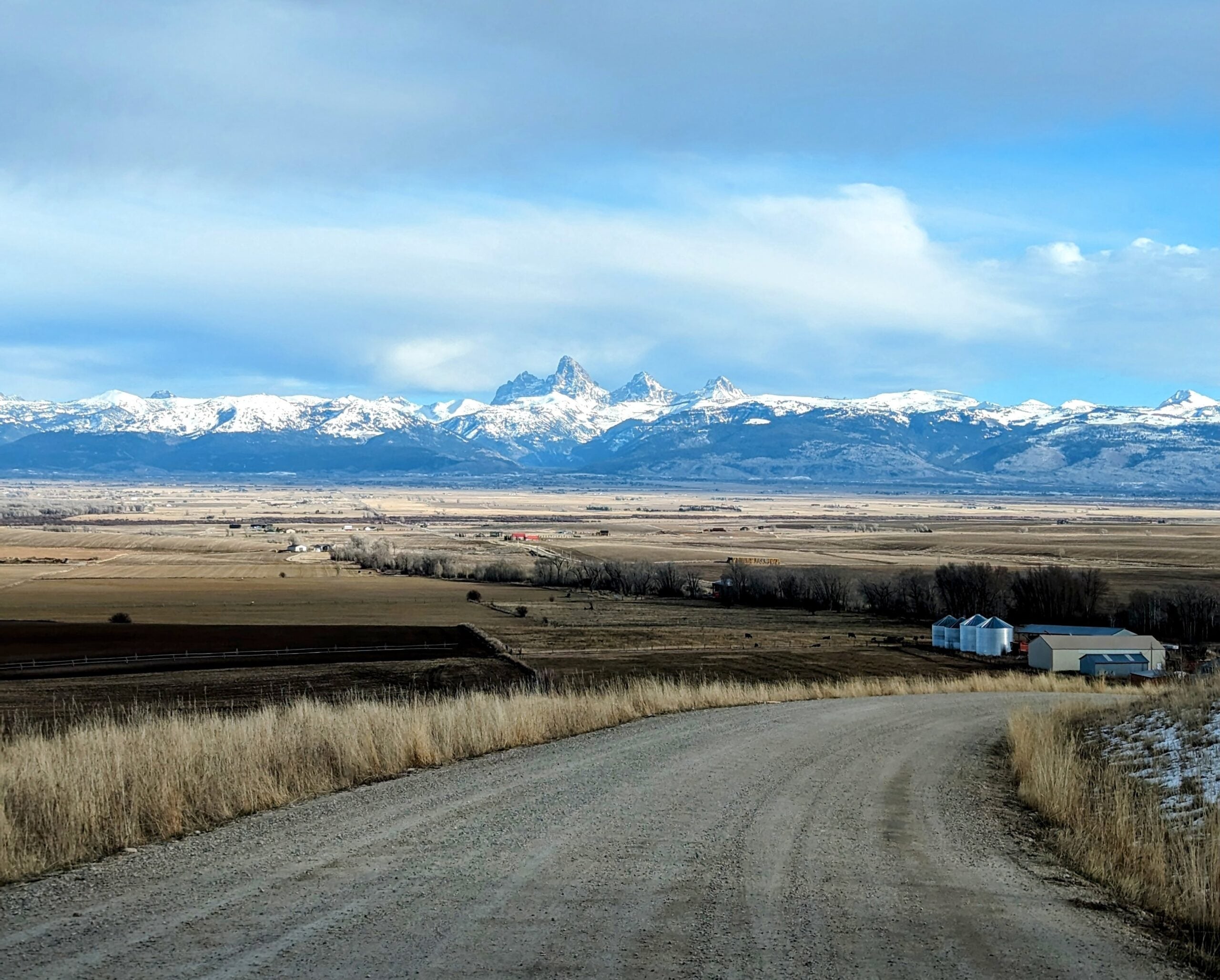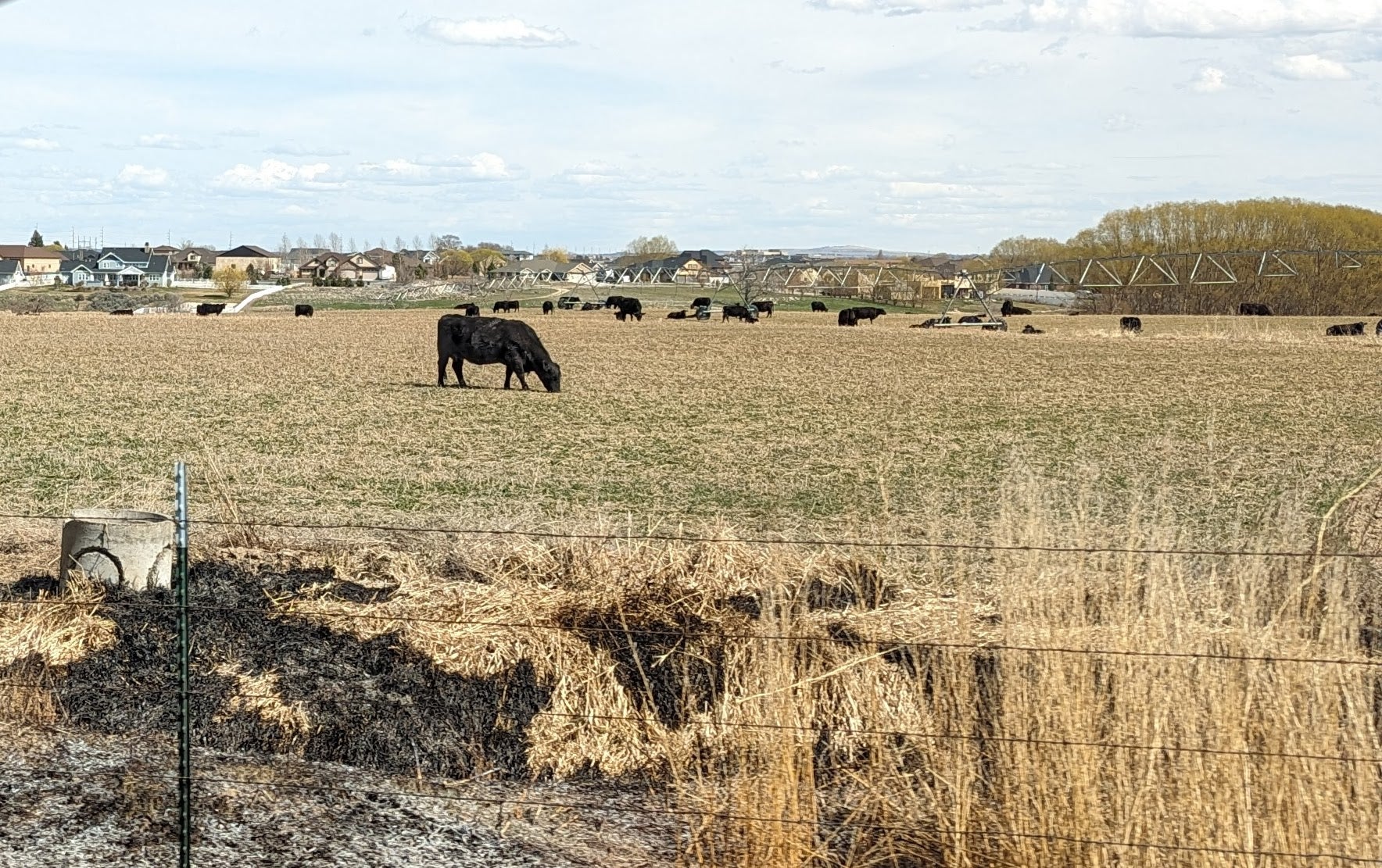
The importance of agriculture in Idaho
“Idaho is one of the most beautiful states that I’ve been to, and agriculture is a big part of that. As a community and a society of Idahoans, we need to care a little bit more about what that looks like,” said Boise State ecology, evolution and behavior doctoral candidate Gwénaëlle d’Aumale. “The best way to get people to care is to recognize that these are family histories that we are losing when we lose farmland.”
d’Aumale is collaborating with her committee chair, Rebecca Som Castellano, on a project investigating farmland loss and protection across Idaho. Her research focuses on the pressures farmers face from rapid development and land use changes, as well as the challenges of implementing farmland protection policies at local and state levels. Her work spans key regions, including the Treasure Valley, Magic Valley and Teton Valley, with the aim of balancing Idaho’s growth alongside the preservation of its agricultural heritage.
Som Castellano, a professor of sociology and interim director for the Human-Environment Systems group at Boise State University, brings extensive expertise to the project. Her career centers on addressing the social and environmental challenges facing agricultural communities, including those in Idaho. She is a contributor to major interdisciplinary initiatives, including the Managing Idaho’s Landscapes for Ecosystem Services Project and Genes by Environment: Modeling, Mechanisms, and Mapping, both part of the National Science Foundation’s Established Program to Stimulate Competitive Research initiatives. Her background in rural sociology and interdisciplinary research provides a strong foundation for mentoring students like d’Aumale.

Photo by Gwénaëlle d’Aumale
From France to Idaho: A pathway to agricultural research
d’Aumale’s academic journey began in Europe. Originally from southeast France, she earned a bachelor’s degree in international development from King’s College London. While there, she studied abroad at the University of California, Santa Barbara, where she was introduced to environmental justice scholars and the intersection of food systems and social justice. After completing her undergraduate studies, she pursued a master’s degree in environment, politics and development at the University of London, where she researched the impact of alternative food networks, like fair trade, on the well-being of farmers in lower-income countries.
Drawn to the western U.S., d’Aumale later completed a professional master’s degree in conservation at Colorado State University, focusing on public and private land conservation and protecting ecosystems with human interaction in mind. While at Colorado State, she was recruited by Boise State to pursue a doctorate. After meeting with professors Jen Schneider and Som Castellano, d’Aumale felt confident in her decision.
“What was supposed to be a 45 minute Zoom meeting, ended up being an hour and a half where we bonded and talked about our academic research interests. That is why I chose this program; we really had a connection and I felt I was being chosen for who I am and how I intend to do my research,” d’Aumale said.
d’Aumale encourages prospective doctoral students to be intentional when selecting a program, emphasizing that strong faculty support can make all the difference in their academic journey.
Now pursuing a doctorate in ecology, evolution and behavior and a graduate certificate in human-environment systems, d’Aumale’s academic and professional experiences connect through her research on farmland loss and protection.
“This is not only merging all of my interests but it is a critical need and a challenge,” she said. “Idaho is an agricultural state and somehow our policies are not in line with that reality. Our policies appreciate agriculture but they do not prioritize agriculture and they allow development encroachment on farmland.”
The personal impact of farmland loss
Throughout her program, d’Aumale has discovered that collaboration is at the heart of meaningful research. She was encouraged to find unity among Idahoans in efforts to protect agriculture.
“People with diverse values and belief systems are coming together to work on this issue,” she said. “The love of food and agriculture is enough to bring so many people to the same table.”
Travelling across Idaho’s Snake River Plain, d’Aumale witnessed firsthand the emotional stakes of her work. She recalled interviewing a seventh generation farmer who teared up when asked about the loss of farmland – a moment that continues to fuel her commitment.

Looking ahead: The future of d’Aumale’s research
Agriculture in Idaho is facing mounting challenges, like rapid development, climate change, population growth and a growing disconnect from its importance. d’Aumale feels the urgency of addressing these issues and hopes her research will inform policies that protect farmland and the livelihoods connected to it.
“There’s a lot of reasons why we should care about farmland and why it should be protected,” Som Castellano said. “People’s jobs and livelihoods are connected to the food system in our community.”
With just over two years left in her program, d’Aumale looks forward to completing interviews and diving into data analysis. Above all, she is deeply grateful for the connections she has formed and the trust Idaho communities have in her.
Reflecting on the personal stories shared by farmers, d’Aumale recognizes the weight of preserving their legacies.
“To be able to carry their stories forward in this research is an honor.”
This publication was made possible by the NSF Idaho EPSCoR Program and by the National Science Foundation under award number OIA-2242769.